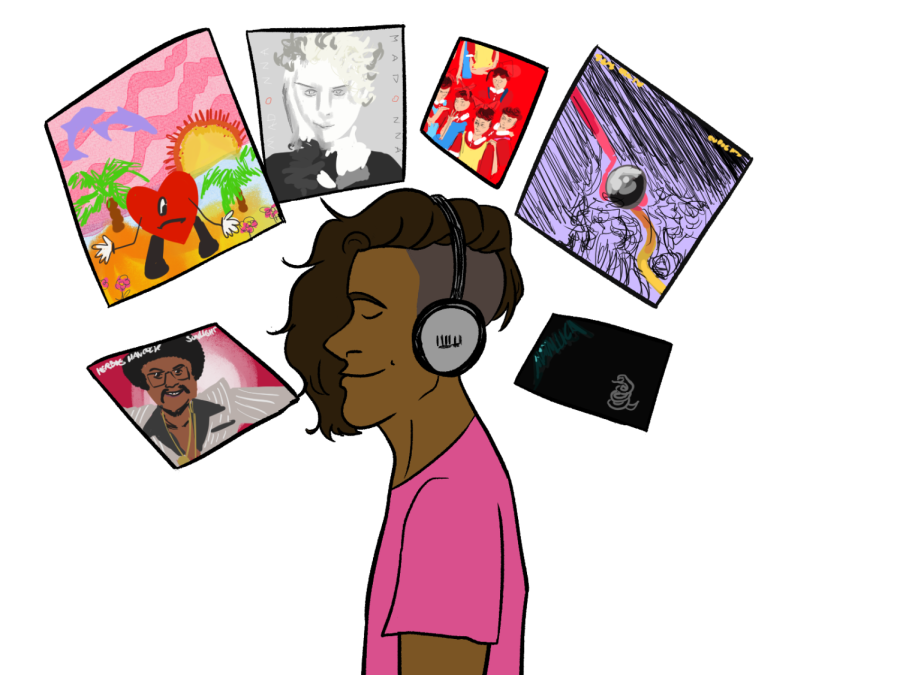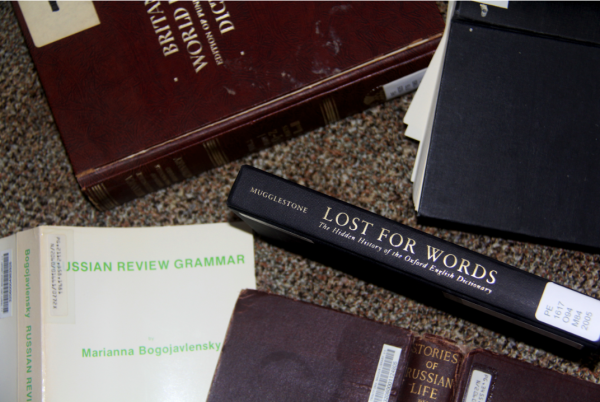Forget the Playlist: Put on an Album
Album Listening: The Key to a More Tolerant Society
With the release of Taylor Swift’s “Midnights,” it is clear that Swift’s fans have exemplified the remnants of what I call the “album generation” — a time when music listeners didn’t have the technological ability to create their own playlists therefore appreciating the album more. For one, Swifties don’t seem to care about merely the singles; they have the patience to listen to the entirety of her albums. Second, through all of the genre changes and thematic differences among her albums, Swift’s fans are open-minded enough to come back for more.
Living in a world with constant access to information and entertainment, our generation’s approach to music is entirely different than that of the previous generations. I would classify this as the “playlist generation” because instead of relying on specific albums to shape musical taste as those that came before us, we have the technological power to easily craft playlists to our liking. While being able to create playlists is a wonderful way to express ourselves, it can lead to neglecting albums and the benefits of album generation. But in an age of simultaneous conformity and division in our society, albums are important as ever.
One of the greatest things a good album will teach you is patience. We are constantly overwhelmed by stimuli meant to pull our attention away from one thing. In an album, there is usually about an hour of music specifically crafted to tell a story that the artist has chosen to put out into the world. There is no cherry-picking your favorite songs and listening only to them — albums require you to forget yourself, focus on the music and be patient, unlike mindless playlist listening.
Albums teach you to have an open mind. I talked to my nana about the concept of this column, and her commentary, being from an album generation, is worth hearing. She explained that even though she would buy an album for a song she heard on the radio, she would eventually find that she liked at least two more songs off the album better than the original one she purchased the album for.
Take, for example, Americana artist Brandi Carlile, who performed Joni Mitchell’s masterpiece album “Blue” live on tour because of the impact it made on her life. Upon first listen, she was unable to get past the first track, “All I Want,” because of the gushy lyric, “I wanna shampoo you, I wanna renew you again and again.” But years later, when she met her wife and listened to the album again knowing what love was, she realized the musical beauty she had been missing out on for a long time. Once Carlile got through the album it was clear her mind needed to be open to accepting the message of “Blue” — a necessary skill that could heal our impatient and quick-to-anger society.
Finally, albums teach you to listen. Of course, patience and open-mindedness are integral parts of listening, but listening itself allows us to see life through different perspectives. When you sit down with an album and listen to it all the way through, you find the ability to hear an artist’s heart and soul poured out, a story to learn and grow from.
When Adele’s album “30” dropped last year, it gave fans the chance to understand her journey of emotions during her divorce. However, due to the platform’s design, only premium Spotify users had the ability to listen to the album on shuffle play. Adele called attention to this issue, tweeting, “We don’t create albums with so much care and thought into our track listing for no reason.” It was important to her that fans can actively listen to her story through the album as she meant to tell it, not in random order.
So the next time a favorite song comes on from your playlist, explore the album it debuted on. You will probably find that the song within the context of the album tells a greater story, one with more meaning than the playlist it came from. A story that can help us all become better at listening, keeping an open mind and being patient even during life’s most skippable chapters.

I am an International Studies and Political Science major with a minor in Spanish. My passions lie in studying methods of peaceful and diplomatic interactions...

Jay Burdine (he/they) is a junior illustrator at the Trinitonian. He is a studio art major with a minor in film studies. Outside of drawing, Jay loves...











Jose Martinez Rodriguez • Jun 4, 2024 at 7:10 pm
Totally agree. Here we are two years later realeasin our debut album at spotify . Zombie blues machine – “Apache”. Take an ear to it,and let your nana do it too!